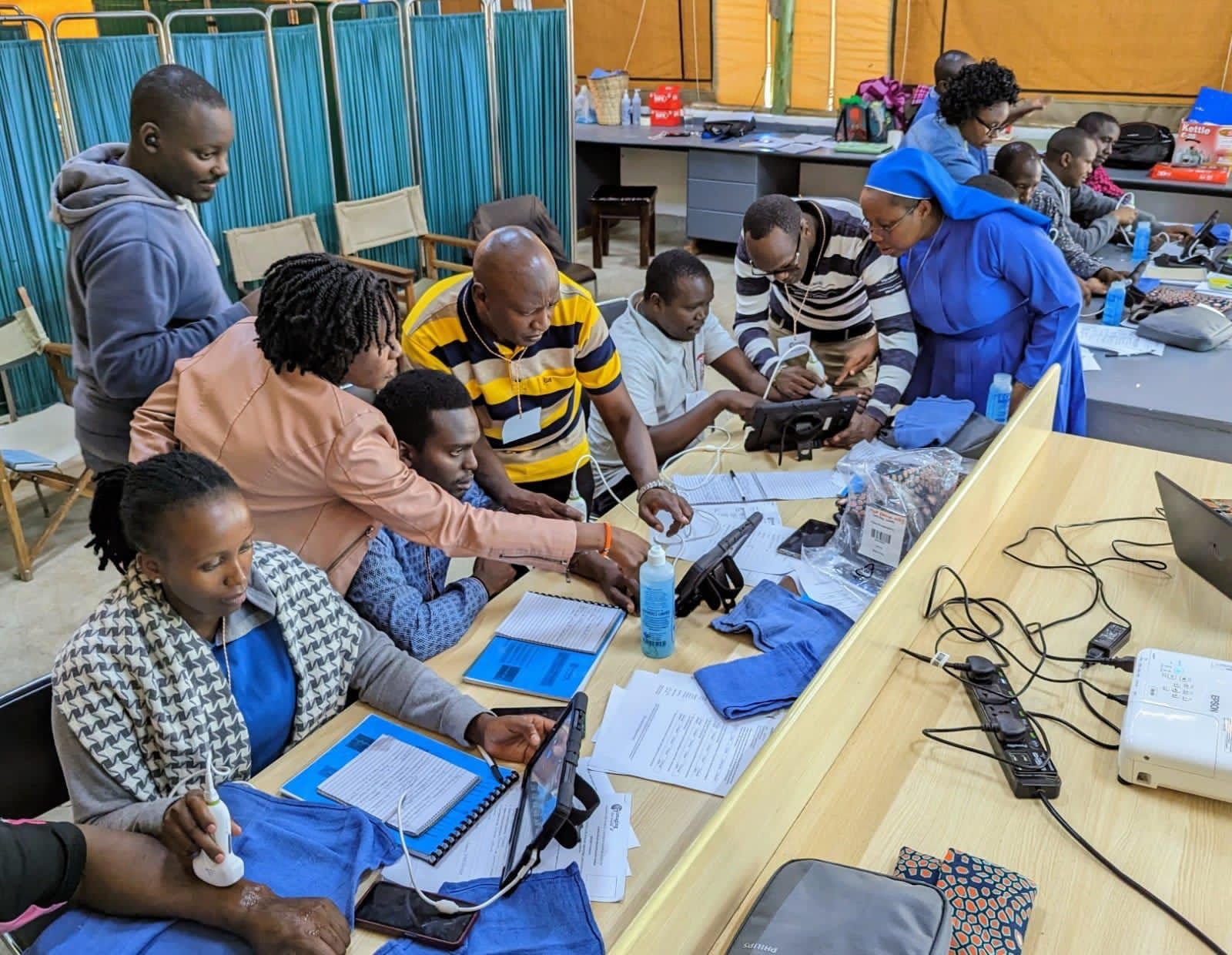
Basic Obstetrics & Gynecology Ultrasound Training
Overview
This core training course from ITW aims to equip health workers - nurses, midwives and clinical officers - in rural areas with fundamental obstetric and ultrasound skills to incorporate into their regular antenatal care, enabling them to identify pregnancies at risk of complications.
By integrating these skills into their daily practice, healthcare workers can improve managing high-risk conditions during pregnancy, leading to better clinical outcomes.
Early detection of obstetric emergencies, timely referrals, and prompt patient management have been proven to significantly reduce maternal, perinatal, and neonatal mortality and morbidity rates. Ultimately, the incorporation of these skills into everyday practice can save lives.
“This training program adheres to international guidelines for training healthcare providers, including nurses, midwives, and other allied health professionals, in performing and interpreting basic obstetric ultrasound.”
Basic Obstetrics and Gynecology Ultrasound Training Phases
The training spans a duration of one year and consists of 3 sequential phases.
Phase 1 (classroom): a 1-month core residential training where participants receive intensive instruction through didactic lectures followed by daily one-on-one hands-on sessions.
Phase 2 (observation and supervised scanning): a 4-month field mentorship phase during which the trainees can apply their newly acquired skills in a clinical setting at their health facilities under the guidance of experienced mentors (field sonographers/ radiographers).
Phase 3 (monitoring and peer review): a 7-month remote mentorship phase during which the nurses and midwives scan independently but receive ongoing support and guidance as they integrate basic ultrasound skills into their daily clinical practice, including instruction on the business model for sustainability. During this phase, the trainees work on patients at their health facilities and send images via a secure network using ITW’s proprietary software for proctoring and review by local experts. This is the phase when data collection on clinical outcomes is commenced.





